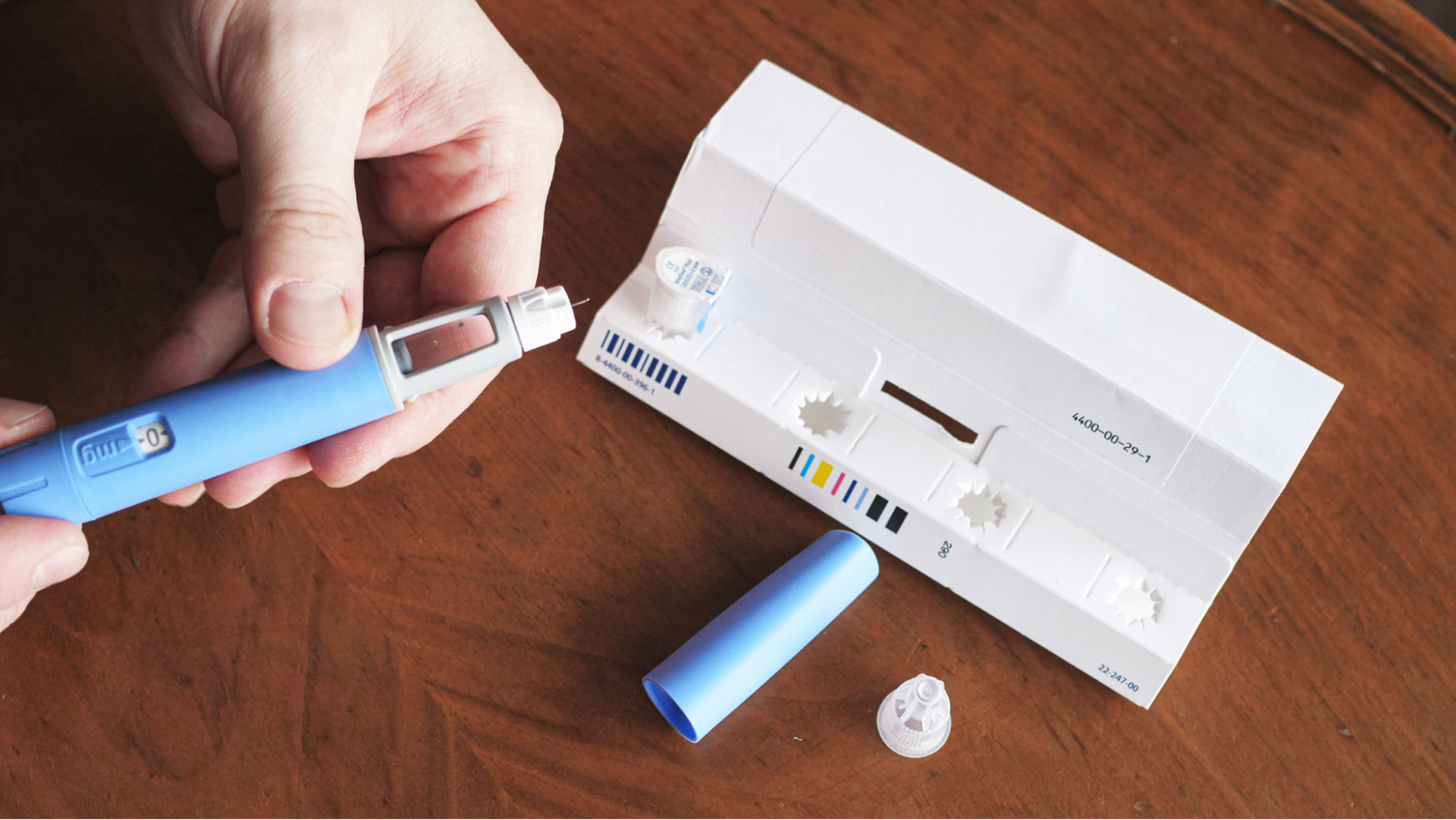Semaglutide
Melbourne’s only Diplomate of the American Board of Obesity Medicine gives insight into Ozempic ®
Ozempic ® is the brand name for semaglutide, a medication that is a GLP-1 agonist. GLP-1 is a hormone your body naturally produces, called an incretin. It signals to the body that you’re full so you should stop eating and gets your blood sugar level, which rises with eating, back to normal.
These medications were originally developed to treat type 2 diabetes and were noted to lead to weight loss. They are now used for the purpose of weight loss even in people who don’t have diabetes. In Australia, Ozempic ® is used off-label for this purpose.
How does it work?
Ozempic works by stimulating glucose-dependent insulin release from the pancreas - so, if your blood glucose is not elevated, you shouldn’t develop hypoglycaemia.
In terms of weight loss, Ozempic works peripherally and centrally. It works in the periphery to slow gastric emptying so you feel fuller for longer and with less food. It works centrally on hunger centres of the brain to suppress appetite.
Who is Ozempic for?
Ozempic is only approved for use in patients with type 2 diabetes in Australia. Using it exclusively for weight management is considered ‘off label’ use.
We use BMI to determine suitability for Ozempic. If your BMI is >30 or >27 and you have weight-related comorbidities like high blood pressure or diabetes mellitus, then Ozempic might be appropriate for you when used in conjunction with lifestyle change.
How much weight will you lose?
Well, that depends.
It is important to understand that these medications should be used in conjunction with a reduced calorie diet, behaviour change and an increase in physical activity - what we call, lifestyle intervention.
The average weight loss at 68 weeks is 15% of total body weight. This data is based on the STEP trials for Wegovy ®, the higher dose of semaglutide that has been approved for weight management.
Not everyone loses that much and some people, up to a third, in fact, lose more.
In general, we consider weight loss medications to be effective if weight loss exceeds 5% after 3 months at the therapeutic dose.
How is it dosed?
In Australia, we currently only have Ozempic ® available. Wegovy ® which is the higher dose of semaglutide has been TGA-approved but it’s not available yet.
Ozempic ® is injected weekly into the skin. It comes in a disposable dial up pen.
The Ozempic pen looks similar to a fountain pen and comes pre-filled. Attach the needle, dial the right dose, give yourself the injection by pressing the button, usually into the skin of the stomach, thigh, arm or buttock and then dispose of the needle in a sharps bin.
Always start at the lowest dose. The starting dose is 0.25mg.
What are the downsides of using Ozempic®?
It’s important to understand that individual results with Ozempic vary. It’s also important to understand that losing weight with Ozempic ® is contingent upon being able to source the medication, being able to tolerate the medication, continued use and concurrent diet and lifestyle intervention.
There are some common side effects. These include: nausea, diarrhoea, vomiting, constipation, abdominal pain, headache, fatigue, dyspepsia, dizziness, abdominal distention, eructation, hypoglycemia in patients with type 2 diabetes, flatulence, gastroenteritis, gastro-oesophageal reflux disease, and nasopharyngitis.
Some more serious adverse events can occur and include: risk of medullary thyroid cancer, pancreatitis, acute kidney injury, risk of developing gallstones, hypersensitivity reactions, increased heart rate and suicidal ideation and behaviour.
In addition, Ozempic ® is not to be used in pregnancy nor in patients with an allergy to this class of medication.


















